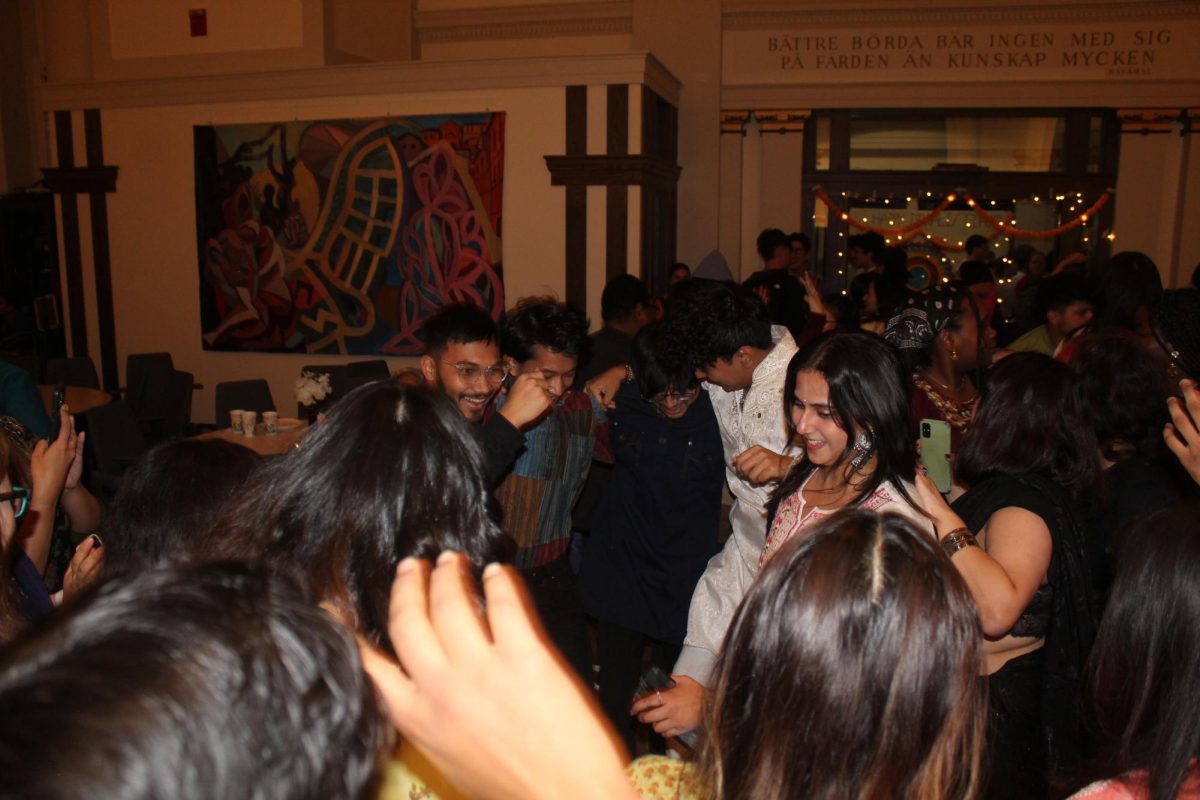This year, Augustana held its third annual Diwali celebration on Friday, Nov. 3, organized by the Global Engagement Team. The event was open to all students and included raffles, performances, sparklers and food.
Diwali, also called Tihar in some areas, is the Hindu festival of lights and colors, celebrating the spiritual victory of light over darkness and good over evil. It is one of the biggest annual celebrations of India and lasts five days each year, sometime between October and November depending on the position of the moon. Diwali marks the start of the Hindu New Year.
Sophomore Norika Thapa, global ambassador, said the festival holds a lot of meaning.
“The festival celebrates appreciating life,” Thapa said. “Not only our lives, but our surroundings and our animals. And on the last day, we celebrate bonds between brothers and sisters.”
Though the celebration originated in India, Diwali is celebrated in many countries, including Nepal, Malaysia, Sri Lanka, Pakistan and other South Asian countries. Diwali is also celebrated by different religions including Sikhism and Jainism.
Diwali is one of the many cultural celebrations held at Augustana each year, and students often feel a great sense of community and welcome at these gatherings.
“A lot of countries are going to be represented by the performances, and people are going to be wearing their cultural attire so we can see everyone’s ethnic background,” Thapa said.
Junior My Nguyen said she has seen how Diwali brings communities together over her three years at Augustana.
“It’s such a great experience to learn more about cultures by seeing the dances and performances and getting to try the food,” Nguyen said. “I’ve met a lot of different people there from many countries, and I’ve found a lot of friends. It’s a good chance to exchange and promote cultures.”
The origin of the festival varies between regions, and the story behind the celebration of Diwali is told in many different ways. In Northern India, Diwali celebrates the return of Rama after defeating the demon king, while in Southern India the festival is in honor of the defeat of the demon Narakarsura.
Some parts of the festival include fireworks, decorating homes, the exchanging of gifts between friends and family and of course, delicious foods. Lamps are widely used as decoration, as they are used to guide the Hindu goddess of wealth, Lakshmi, to homes to bring prosperity for the new year. Rangoli, which are patterns and designs made from colorful powders, are also common to see outside of homes to bring good luck.
Sophomore Drishtant Bhandari, member of the Global Engagement Team, said there are improvements he would like to make to the celebration to ensure that Augustana students are aware of the importance and significance of Diwali.
“People here know Diwali as an Indian festival, but it’s not just Indian,” Bhandari said. “We use the name Diwali because it’s well known, but there are actually different names for it. And people here oftentimes have no idea why Diwali is celebrated. They know it’s a celebration but not why. So I’d like to work on talking about it more during the event.”
My Nguyen is a former employee of the Observer.









































































































